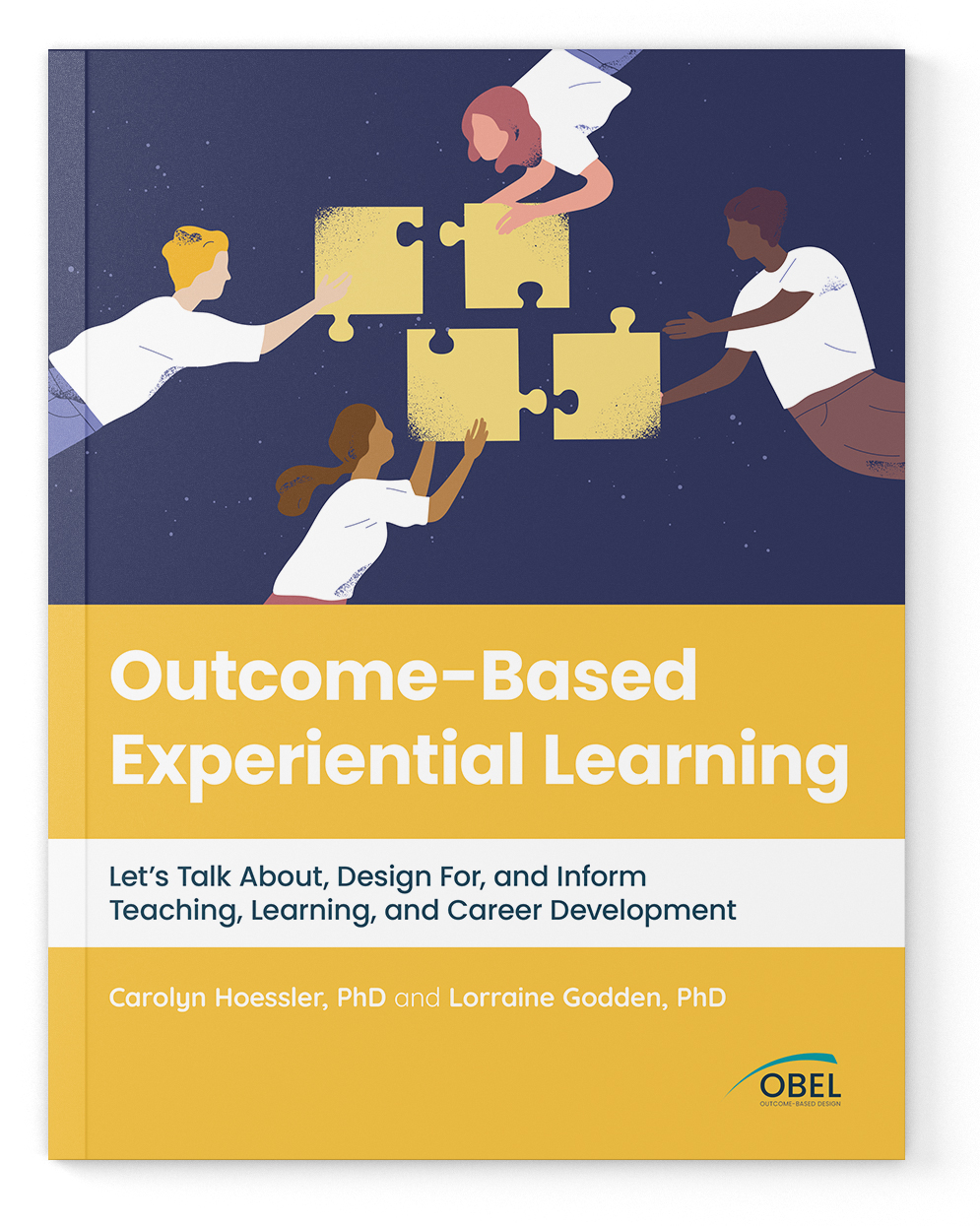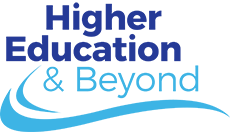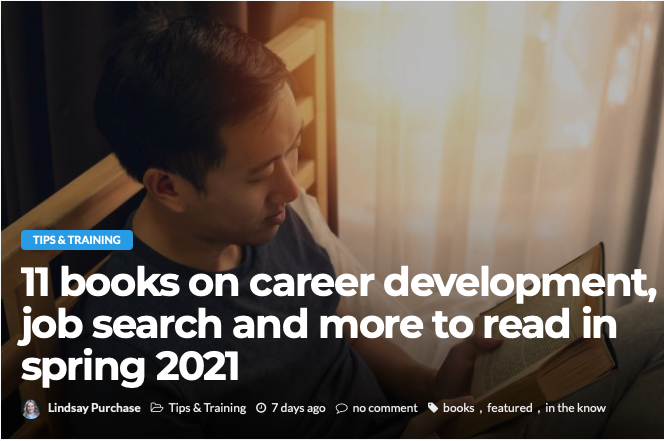Outcome-Based Experiential Learning (OBEL) Framework
Identify Outcomes, Communicate with Stakeholders, Plan for Five Design Factors: Create Meaningful Experiential and Work-Integrated Learning!
The Outcome-Based Experiential Learning (OBEL) Framework offers:
- List of potential direct, indirect, and system-level stakeholders
- 55 intended outcomes that stakeholders and co-creators may have for an experiential learning or work-integrated learning opportunity or experiential learning in general;
- Five Design Factors that influence alignment and provides a planning checklist for experiences; and
- A planning template for design discussions to align outcomes, activities, and assessments while considering the five factors.


Now Available! Outcome-Based Experiential Learning: Let’s Talk About, Design For, and Inform Teaching, Learning, and Career Development
By Carolyn Hoessler, PhD and Lorraine Godden, PhD
Outcome-based design (OBEL) for experiential learning, work-integrated learning, and career programming is a practical evidence-informed guide for stakeholders and coordinators. By focusing on the intended outcomes of stakeholders, OBEL offers flexibility in activities, synergies between outcomes, and alignment with assessment and evaluation.
For coordinators and educators faced with shifting contexts and priorities, OBEL offers approaches for communicating goals, defining program types, and focusing on design decisions. Integrating theory and practical approaches, this guide aims to keep programming feasible and scaleable with practical considerations throughout.
E-book version available at Amazon or Chapters or Barnes & Noble
Print version available at Amazon or Barnes & Noble
Institutional or local libraries can order our book through Ingram ipage. ISBN: 9781777626020.
Templates available with purchase of ePub or paperback version. If you have purchased and need the access code, email info@hedbeyond.ca with proof of purchase.
On Demand CERIC Webinar Series: Designing Feasible, Focused And Flexible Experiential Learning In Challenging Times!
CERIC Webinar Series, EWO sponsored
On Demand
Getting experiential learning (EL) and work-integrated-learning (WIL) right is important, and getting each experience right feels complex. Multiple stakeholders, aims, and needs pose challenges to navigating relationships and designing experiences, while ongoing shifts to remote learning and restricted workplaces remove the usual options.
11 books on career development, job search and more to read in spring 2021
Lindsay Purchase, CareerWise
Pour yourself a cup of tea, pull up a comfortable seat and settle in with our spring reading roundup. These books were all published in 2021 and cover a variety of topics including emotions in career development, outcome-based experiential learning and the power of career stories…
Outcome-Based Experiential Learning: Let’s Talk About, Design For, and Inform Teaching, Learning, and Career Development – Carolyn Hoessler and Lorraine Godden
Outcome-based design (OBEL) for experiential learning, work-integrated learning and career programming is a practical evidence-informed guide for stakeholders and coordinators. OBEL offers approaches for communicating goals, defining program types and focusing on design decisions. This guide aims to keep programming feasible and scalable with practical considerations throughout.
LEARN MORE & RECENT SESSIONS
- Watch the CERIC May 2020 webinar on Going Remote with Experiential Learning and Work-Integrated Learning: A Practical Outcome-based Approach (63 minutes)
- Sign up for an early alert for webinars
- Purchase the guide
- CERIC EWO webinar series February 25 – March 11, 2021
- Book a workshop, presentation or consultation by emailing carolyn(at)hedbeyond.ca or lorraine(at)ironwoodconsulting.ca
RECENT APPLICATIONS
- Informing conversations with stakeholders to unpack broad goal statements of “for careers” or “for better learning”.
- Distinguishing why labs may be experiential learning or might not be both based on the outcome and the resulting consideration of context (factor 1).
- Talking to students about their goals (intended outcomes) for upcoming placements.

